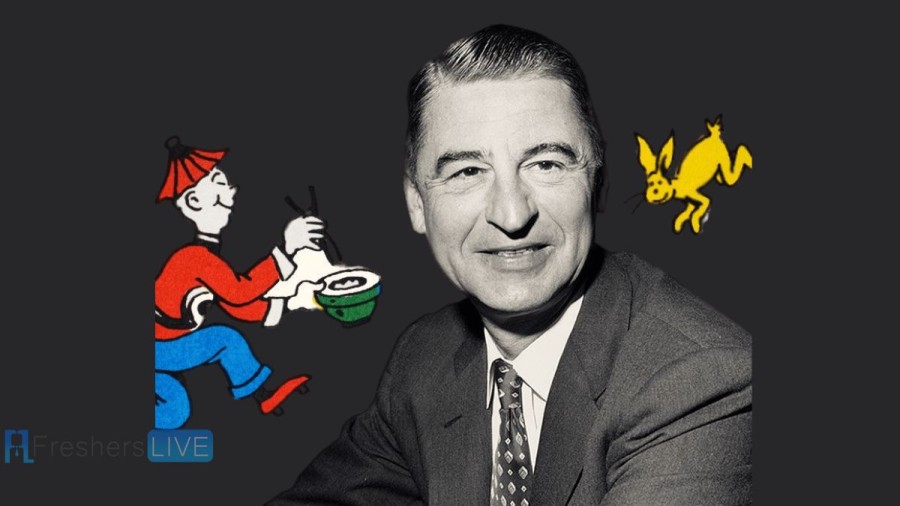What happened to Dr. Seuss? How did Dr. Seuss die?
by Ushapriyanga
Updated Mar 03, 2023

Who is Dr. Seuss?
Theodor Seuss Geisel, born on March 2, 1904 and passing away on September 24, 1991, was an acclaimed American children's author and cartoonist. Dr. Seuss, his pen name, is renowned for his more than 60 books which he both wrote and illustrated. His works are some of the most beloved children's books ever published, having sold over 600 million copies and been translated into over 20 languages by the time of his death.
While at Dartmouth College and Lincoln College, Oxford, Geisel adopted the pen name "Dr. Seuss." He began his career in illustration and cartooning at Vanity Fair, Life, and various other publications, as well as advertising campaigns such as for FLIT and Standard Oil, and as a political cartoonist for the New York newspaper PM. In 1937, he published his first children's book, And to Think That I Saw It on Mulberry Street. During World War II, he illustrated political cartoons and worked in the animation and film department of the United States Army, producing, writing, and animating productions like Design for Death, which won the 1947 Academy Award for Best Documentary Feature Film.
What happened to Dr. Seuss?
Dr. Seuss Enterprises, which oversees the estate of Theodor Seuss Geisel, has announced that six books by the beloved children's author and illustrator will no longer be published due to their use of offensive imagery. The decision to cease publication and licensing of the titles, including the first book Geisel wrote under the pen name Dr. Seuss, "And to Think That I Saw It on Mulberry Street," and "If I Ran the Zoo," was made last year after working with a panel of experts, including educators, and reviewing its catalog of titles. The business said in a statement that the books "portray people in ways that are hurtful and wrong." Geisel, who passed away in 1991, is known for his whimsical stories that have entertained both children and adults worldwide. The other titles that will no longer be published are "McElligot's Pool," "On Beyond Zebra!," "Scrambled Eggs Super!," and "The Cat's Quizzer." After his death, Geisel's ashes were scattered in the Pacific Ocean, and in 1995, the University of California, San Diego's University Library Building was renamed Geisel Library in honor of Geisel and his wife Audrey for their contributions to the library and their dedication to improving literacy.
How did Dr. Seuss die?
Theodore Seuss Geisel, who wrote and illustrated 47 beloved children's books under the pen name Dr. Seuss, died from cancer at the age of 87. Geisel had been ill for several months leading up to his death. Throughout his career, Geisel won multiple awards, including Oscars, Emmys, and a Pulitzer Prize in 1984. He sold over 100 million copies of his books in 18 languages, including classics like "The Cat in the Hat" and "How the Grinch Stole Christmas." Geisel was known for infusing his books with his liberal views, including environmental activism and opposition to war. He was born in Springfield, Massachusetts in 1904 to a baker's daughter and a German brewer. After studying literature at Oxford and spending time in Paris, Geisel worked in advertising in New York before writing his first children's book, "And to Think That I Saw it on Mulberry Street," which became a bestseller. During World War II, he served in the army and was assigned to work in animation in Hollywood.
What kind of Cancer did Dr. Seuss die of?
Dr. Seuss, whose real name was Theodor Seuss Geisel, passed away on September 24th, 1991 at the age of 87. He had been diagnosed with oral cancer and underwent surgery to prevent it from spreading, but later developed an incurable jaw infection. Despite his passing, his legacy lives on through his popular works that continue to inspire and entertain both children and adults. Geisel's impact on literature is so significant that he is often referred to as the "modern Mother Goose." He has been honored with various awards and tributes, including the creation of the Dr. Seuss National Memorial Sculpture Garden and the Amazing World of Dr. Seuss Museum in Springfield, Massachusetts. In addition, the Theodor Seuss Geisel Award was established in 2004 by children's librarians to recognize exceptional beginning reader books published in the United States.
What Happened To Dr. Seuss - FAQs
Dr. Seuss was the pen name used by Theodor Seuss Geisel, an American author and illustrator best known for his children's books.
Some of Dr. Seuss's most famous books include "The Cat in the Hat," "Green Eggs and Ham," "Oh, the Places You'll Go!," "How the Grinch Stole Christmas," and "The Lorax."
Dr. Seuss was known for his playful use of language, made-up words, and whimsical illustrations. He often incorporated social and political commentary into his books, including messages about environmentalism and anti-war sentiments.
Dr. Seuss's books are popular because of their fun and imaginative stories, playful use of language, and whimsical illustrations. They appeal to both children and adults and often contain messages that are still relevant today.







